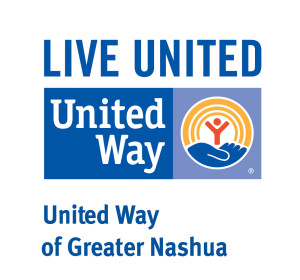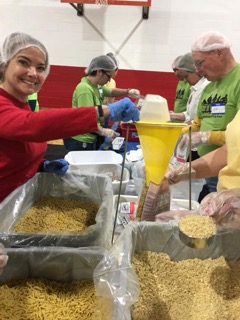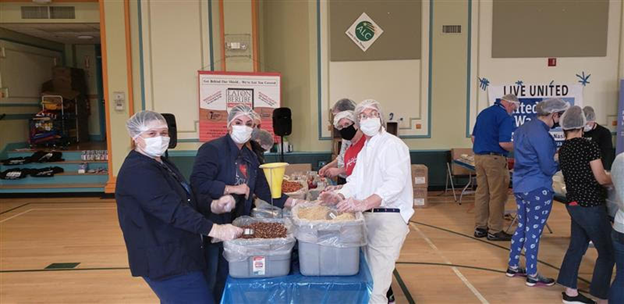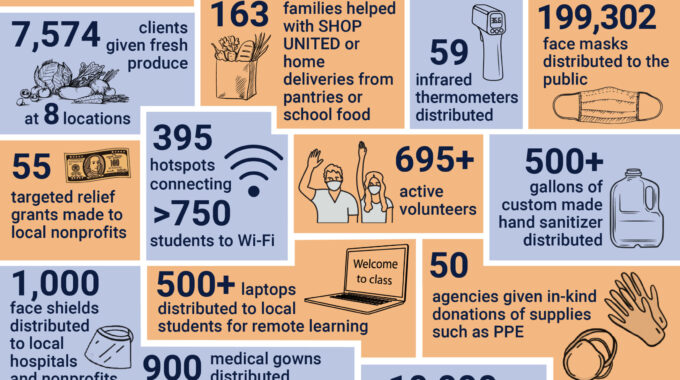
Nashua’s Other Children
The purpose of this column is to provide Telegraph readers with topics that align with United Way’s mission to fight for the health, education, and economic mobility of every person in our community and to offer the reader avenues by which to become involved in some new way in improving our community. Today’s topic centers on the lives of children placed in residential homes, and the co-author of this article is a leading community expert in this field, David Villiotti, Executive Director of Nashua Children’s Home (NCH).
Prompting me to write about this topic is a personal relationship I have with an NCH employee who shared the heartbreaking stories, told anonymously to protect privacy, about the reasons why kids are placed at NCH. For example, one kid’s chore at home was to clean her parents’ needles. Other kids, whose parents have had their rights revoked, have failed in foster or pre-adoptive homes, and desperately want nothing more than a real mommy and daddy
Founded as the Nashua Protestant Orphanage Association in 1903, the term “orphanage” hardly seems appropriate anymore. NCH has as its goal the preparation of young people for lives as healthy, productive, successful adults. On any given day, there are up to 46 New Hampshire youth, the majority of them from Nashua and vicinity, living at NCH. I have learned is that there are many different players involved with a child once they have entered the system, and while they all might agree that the success of the child is their goal, they can have widely divergent viewpoints on the best approach to achieving success, or what success even looks like. The State of New Hampshire has as its primary goal “permanency,” meaning moving the child as quickly as possible into a permanent living arrangement, either with their biological family, or an adoptive family. The push for permanency is often overly expeditious, and as a result roughly 20% of placements at NCH are actually re-admissions. Residential facilities such as NCH also have permanency as a goal, but success is their overarching goal and oftentimes success, in their eyes, trumps permanency. However, the residential facility has NO LEGAL RELATIONSHIP with the child. This is quite striking, considering that a child can live for several years at the facility. So while the facility can advocate for what the child needs, they have no legal basis to do so and rely, instead, on the good faith built up through years of working with the schools, courts, and other agencies.
Who else plays a role in the lives of these young people, who range in age from 7 to 18 years old? About half are prescribed a regimen of psychotropic medications, including for treatment of depression, anxiety, and bi-polar disorder. While NCH employs mental health clinicians, they have no medical staff so prescribers, those psychiatric nurses and psychiatrists, including those at Greater Nashua Mental Health Center (GNMHC) play a major role in the lives of NCH kids. About ¾ of the kids in residential facilities have an individual education plan (IEP) meaning that they are receiving special education services, so the schools play a major role in these kids’ lives. Additionally, there is often a CASA volunteer attached to the child who advocates for the “best interest” of the child, or an attorney who represents the child’s wishes, and of course the State is involved through the Division for Children, Youth, and Families (DCYF).
The reader might be asking “Why should this matter to me?” In addition to the moral imperative we have to take care of society’s most vulnerable, we also have a vested economic interest in success. Consider that approximately 40% of the nation’s homeless are products of the child welfare system. That means a very high demand for costly services which can, in turn, drain away resources from other areas such as educational and health. To address this issue, NCH’s Transitional Living Program commenced operation in 2004, and offers 18-year-olds a setting where they can live for a few years while they get themselves on their feet. How many of us can imagine sending a young person, perhaps our own child, at the age of 18 out into the world without resources to make it on their own? Transitional living, however, is a completely self-supporting program, with no financial support from the state, so heavily dependent on donations.
How can you make a difference? For starters, just learning about the issue is half the battle. Visit the websites of CASA-NH, Nashua Children’s Home (www.nashuachildrenshome.org), the Youth Council, and GNMHC. Ask your legislator what they know about the push for permanency or the funding for residential living. The per diem rate for residential living, the basis of its funding, hasn’t gone up in 8 years, making it ever more difficult to provide quality outcomes. Volunteering is an option as well, and these agencies can tell you about volunteering opportunities to make a difference in these young peoples’ lives. Finally, agencies such as NCH are always in need of additional financial resources, so donations, particularly unrestricted donations are always helpful.
The next time you are taking a walk around our lovely town, enjoying the sights and sounds of Nashua, try to take a moment to remember these hidden kids and think of a way or two in which you might help. It can make all the difference!
Mike Apfelberg is President of United Way of Greater Nashua. David Villiotti is Executive Director of Nashua Children’s Home.

















